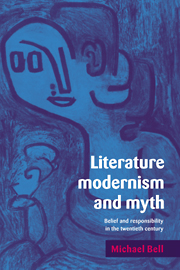6 - Living with myth: Cervantes and the new world
Published online by Cambridge University Press: 18 December 2009
Summary
While helping to inaugurate the tradition of European realist fiction, Cervantes' creative range encompassed the romance from his early La Galatea (1585) to the posthumously published Persiles and Sigismunda (1616). Indeed, it is a truism that even in Don Quixote, far from simply satirising the romances of chivalry, he was deviously adding to their number, and, Borges argues, the long-term reception of the book shows the irrepressibility of the mythopoeic imagination even in the most banal contexts of modernity: ‘For myth is the beginning of literature, and the end.’ This footing in romance proved to be important for modern Latin American writers within the Hispanic tradition. Whereas Mann, a scion of northern Europe, was attracted principally to the tolerant Erasmian irony of Cervantes, later Latin American writers, such as Mario Vargas Llosa, Carlos Fuentes and Gabriel García Márquez, were to turn to him more specifically as a point of mediation between modernity and the marvellous, as a way back to the world of romance.
ALEJO CARPENTIER: RECOVERING THE MARVELLOUS IN THE KINGDOM OF THIS WORLD
The Cuban novelist, Alejo Carpentier, himself of mixed descent, was an important part of this story, as his works are constantly concerned with the historical interrelations of modern European and indigenous Latin American cultures. His first novel Ecue-Yamba-O (1933) was a critical and commercial failure leading to a long gap in his fictional output. The work was an attempt to get inside an indigenous cultural world by a sophisticated literary means, and Roberto Gonzalez Echevarria has pointed out that if there is a ‘crack’ between the two aspects this provides precisely the project for his future fiction.
- Type
- Chapter
- Information
- Literature, Modernism and MythBelief and Responsibility in the Twentieth Century, pp. 182 - 198Publisher: Cambridge University PressPrint publication year: 1997



